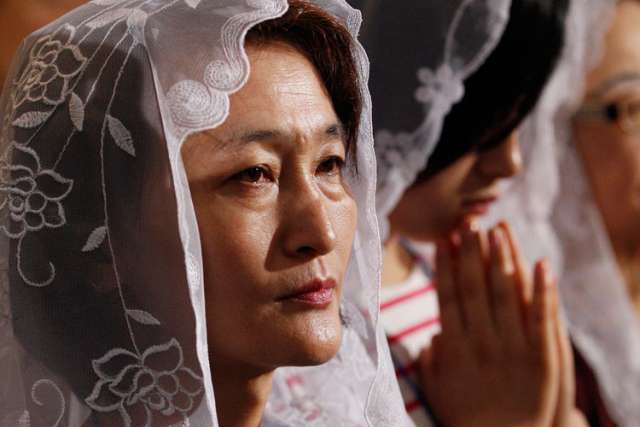Our bodies and our souls each have their separate aging process, and they aren’t always in harmony. Thus, T.E. Laurence, in The Seven Pillars of Wisdom, makes this comment about someone: “He feared his maturity as it grew upon him, with its ripe thought and finished art, but which lacked the poetry of boyhood to make living a full end of life ... his rangeful, mortal soul was aging faster than his body, was going to die before it, like most of ours.”
Unconditional forgiveness is betrayal’s companion
By Mary MarroccoWhat does the title “Divorce Busting” suggest to you? A law firm, perhaps? Actually, it’s a counselling service for couples on the brink of divorce. I attended a workshop by its founder, an enlightening tour through the labyrinth of betrayal.
Unconditional forgiveness is betrayal’s companion
By Mary MarroccoWhat does the title “Divorce Busting” suggest to you? A law firm, perhaps? Actually, it’s a counselling service for couples on the brink of divorce. I attended a workshop by its founder, an enlightening tour through the labyrinth of betrayal.
Christ is the cure for what ails humanity
By Fr. Scott Lewis, S.JExaltation of the Holy Cross Sept. 14 (Numbers 21:4-9; Psalm 78; Philippians 2:6-11; John 3:13-17)
It would be a safe bet to offer $10 to anyone in a group able to explain the Feast of the Exaltation of the Holy Cross. In the fourth century, it commemorated the discovery of Christ’s cross by St. Helena, the Emperor Constantine’s mother. The Eastern Churches tied it to Emperor Heraclius’ recovery of the relic of the cross from Persian captivity in the seventh century. Take your pick!
Karma will always get you in the end
By Fr. Ron RolheiserIn 1991 Hollywood produced a comedy entitled City Slickers starring Billy Crystal. In a quirky way it was a wonderfully moral film, focusing on three middle-aged men from New York City who were dealing with midlife crisis.
With love we look out for the other
By Fr. Scott Lewis, S.J23rd Sunday in Ordinary Time (Year A) Sept. 7 (Ezekiel 33:7-9; Psalm 95; Romans 13:8-10; Matthew 18:15-20)
How much responsibility do we have for the behaviour of others? This is a difficult and delicate question — many of us have encountered the self-righteous busybody intent on running the lives of others. Ezekiel addressed a different but related issue: communal versus individual responsibility.
Walking on water, sinking like a stone
By Fr. Ron RolheiserFaith isn’t something you ever simply achieve. It’s not something that you ever nail down as a fait accompli. Faith works this way: Some days you walk on water and other days you sink like a stone. Faith invariably gives way to doubt before it again recovers its confidence, then it loses it again.
Focus on what is found, not what is lost
By Fr. Ron RolheiserSometimes everything can seem right on the surface while, deep down, nothing is right at all. We see this, for example, in the famous parable in the Gospels about the Prodigal Son and his older brother. By every outward appearance the older brother is doing everything right: He’s perfectly obedient to his father, is at home and is doing everything his father asks of him. And, unlike his younger brother, he’s not wasting his father’s property on prostitutes and partying. He seems a model of generosity and morality.
Peace comes with submitting to God
By Fr. Scott Lewis, S.J22nd Sunday in Ordinary Time (Year A) Aug. 31 (Jeremiah 20:7-9; Psalm 63; Romans 12:1-2; Matthew 16:21-27)
We can perhaps sympathize with Jeremiah. He did not ask for the calling of a prophet — in fact, he was dragged kicking and screaming into his role as God’s mouthpiece.
Finding meaning is essential to life
By Mary MarroccoJesse is in a tough spot. Having lost his business after personal troubles, he lives on a small pension. His grown-up children visit once in a while, bringing the grandkids, but he has few social contacts and seems unneeded in the world. How has he coped? “Faith in God” is his ready response to this question. Yet he’s angry with God, too, with himself, and with the systems that didn’t rescue him.
No favourites, only justice, compassion
By Fr. Scott Lewis, S.J21st Sunday in Ordinary Time (Year A) Aug. 24 (Isaiah 22:15, 19-23; Psalm 138; Romans 11:33-36; Matthew 16:13-20)
No one has an absolute right to a position of trust and authority. Along with authority there is responsibility and accountability, and however slowly the wheels of justice turn they grind exceedingly fine. Shebna discovered this to his chagrin when he was fired by one against whom there is no appeal — God. The people of Israel believed God raised up individuals to govern the nation, but they were also positive God could and would dismiss anyone who abused that trust.












